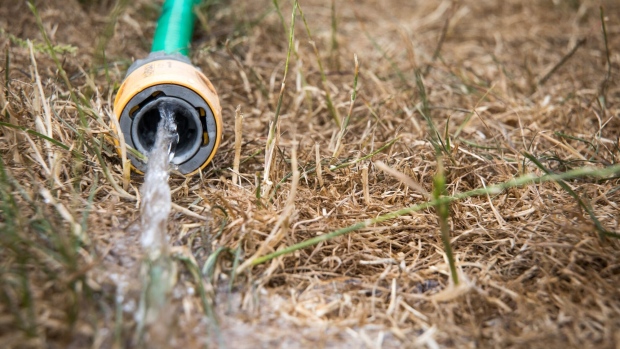Jun 16, 2023
UK Hosepipe Ban Planned for Southeast Due to Record Water Demand
, Bloomberg News

(Bloomberg) -- Southeast England faces a hosepipe ban later this month, after dry weather and record demand strained a utility’s capacity to provide enough drinking water.
The ban from June 26 will impact households in Kent and Sussex, South East Water Ltd. said in a statement on Friday. People using hosepipes after that date to water gardens, wash cars and fill swimming pools will risk fines of as much as £1,000 ($1,280).
Extreme weather is hitting the UK earlier than last year, pushing demand higher than last summer, when an historic drought and heat waves across Europe dried up rivers and triggered wildfires. Still, the nation’s water regulator said South East Water must do better at managing operational issues, after the company said it couldn’t treat enough water to keep pace with demand.
“Customers will be asking why, for the second time in six months, their water company is being caught out by the weather,” an Ofwat spokesperson said.
Although the UK is experiencing a dry spell, the Southeast has had more rain than other regions. Moreover, the challenge of treating enough drinking water points to issues with infrastructure rather than reservoir levels.
Indeed, levels for South East Water’s two reservoirs are 100% and 89% full. That’s much higher than in the North West, for example, where water company United Utilities Group Plc. has reservoirs 76% full.
Demand peaked last weekend at 678 million liters a day, 138 million liters above a typical day in summer, according to South East Water. However, that demand figure also includes leaks, which in 2021/22 were running at 88.7 million liters a day, or almost two-thirds of the deficit.
By 2050, the UK’s Environment Agency expects the gap between available water and what’s needed by homes and businesses to reach 4 billion liters per day in England. Leaks are part of the picture, but so is a neglected network, some of which was built more than 150 years ago, that doesn’t store enough for times of drought, and water consumption that outstrips many other parts of Europe.
Read More: Britain Comes to Terms With Its New Water Poor Reality
The company said climate change was another reason for the increased the frequency of such events, adding that it would be submitting proposals to the industry regulator to “solve” these issues.
“This situation has developed much more rapidly than last year,” South East Water Chief Executive Officer David Hinton said in the statement. “Restricting the use of hosepipes and sprinklers to make sure we have enough water for our customers’ essential use, will ensure we can serve our vulnerable customers and to protect the local environment.”
Read More: London’s Lack of Rain Revives Specter of Last Year’s Drought
(Updates with comment from regulator in third paragraph)
©2023 Bloomberg L.P.


